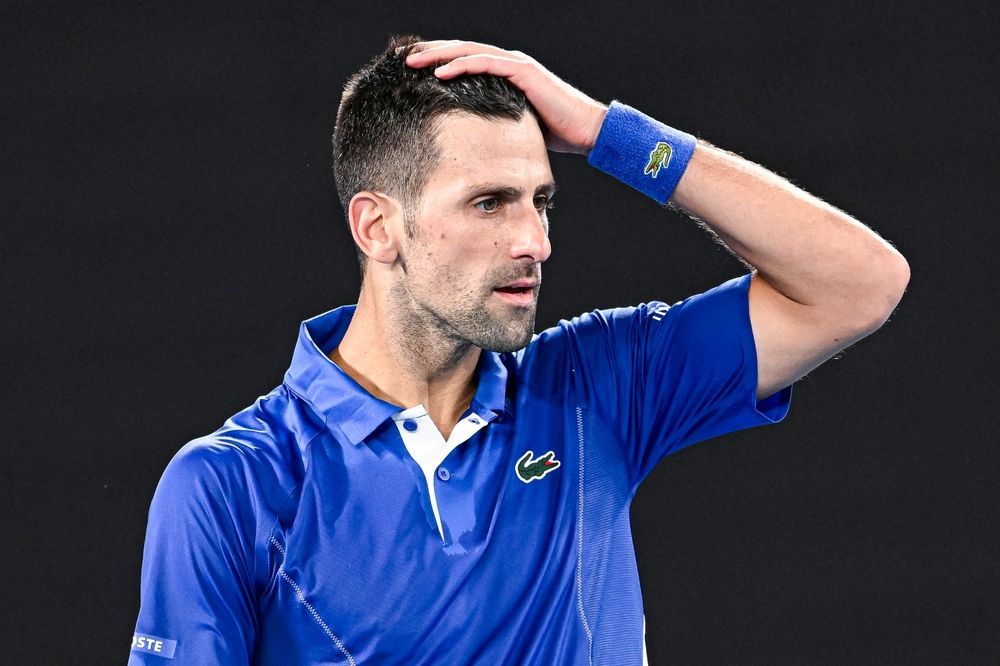
Serbian star Novak Djokovic faced an unexpected change in his Miami Open 2025 schedule after his quarterfinal match against American Sebastian Korda was postponed. Originally set for Wednesday night at 11:45 PM (Brasília time), or 10:45 PM local time, the game was pushed to Thursday at 5:00 PM (Brasília time) due to a new ATP and WTA regulation banning matches from starting after 11:00 PM local time. The delay stemmed from the preceding match between Emma Raducanu and Jessica Pegula, which concluded past 11:15 PM in Miami, leaving no window for Djokovic and Korda to take the court within the allowed timeframe.
The postponement offers Djokovic, the world number one, additional rest before a pivotal clash in his pursuit of a seventh Miami Open title. Fresh off a straight-sets victory over Italy’s Lorenzo Musetti (6/4, 6/3) in the previous round, the 37-year-old showcased his trademark consistency to reach the quarterfinals for the eighth time in Miami and the 92nd time in Masters 1000 events. Meanwhile, Korda, a rising 24-year-old American talent, advanced after a hard-fought win over Argentina’s Tomás Etcheverry, setting the stage for an intriguing matchup. The new rule, designed to protect players from the physical toll of late-night matches, has quickly reshaped the tournament’s rhythm.
ADIADO!
Jogo de Djokovic x Korda é adiado por conta de programação atrasada em Miamihttps://t.co/hRwqHCkLud pic.twitter.com/XKEMLDej1k
— Site Tenis News (@tenisnewsbrasil) March 27, 2025
This shift in scheduling highlights a broader transformation in professional tennis. Players have long voiced concerns over grueling late-night sessions, with some matches in recent years stretching into the early morning hours. The ATP and WTA’s decision to enforce a cutoff reflects a commitment to athlete well-being, though it poses logistical challenges for tournament organizers. In Miami, the late finish of Raducanu versus Pegula forced officials to act swiftly, ensuring compliance while keeping the competition on track.
How the new rule reshapes tennis
The ATP and WTA’s ban on matches starting after 11:00 PM local time marks a significant departure from past practices. For a player like Djokovic, who often headlines night sessions due to his global appeal, the change could mean more predictable recovery periods. The Raducanu-Pegula match, which extended beyond two hours, underscored the unpredictability of live tennis. Pegula emerged victorious, but the ripple effect left Djokovic and Korda waiting, with their game rescheduled for the afternoon session on Thursday.
Fans had mixed reactions to the adjustment. Those anticipating a late-night thriller were disappointed, yet the move ensures Djokovic, renowned for his meticulous preparation, steps onto the court refreshed. Korda, meanwhile, faces the challenge of adapting to a daytime slot against a formidable opponent. The American, ranked 22nd in the world, has shown promise on hard courts, making this quarterfinal a potential turning point in his career.
Djokovic’s dominance in Miami is well-documented. With six titles (2007, 2011, 2012, 2014, 2015, 2016), he ranks among the tournament’s most successful players. His experience could prove decisive against Korda, who is chasing his first Masters 1000 semifinal. The son of former top player Petr Korda, Sebastian has steadily climbed the ranks, blending power and precision in his game.
- Key aspects of the new ATP/WTA rule:
- No matches begin after 11:00 PM local time.
- Focus on player rest and recovery.
- Adjustments to schedules to prevent cascading delays.
Challenges for Miami Open organizers
Running a tournament like the Miami Open, held annually in Florida, demands precision. The 2025 edition has already drawn record crowds, with early rounds featuring standout moments like Brazilian João Fonseca’s spirited performance against Alex de Minaur. Though Fonseca fell in the second round, his explosive play earned praise from de Minaur, who jokingly noted the roaring Brazilian fanbase. Such energy underscores the event’s appeal, but also its complexity.
Delays, however, remain a persistent hurdle. Lengthy matches can throw off carefully planned schedules, as seen with Raducanu and Pegula. With no room to start Djokovic’s match before midnight, organizers shifted it to Thursday’s day session. The central court, where the quarterfinal will unfold, is now primed for a 5:00 PM (Brasília time) start, giving both players ample preparation time. The decision reflects a balancing act between player needs and fan expectations.
Djokovic’s path to the quarterfinals has been steady. His win over Musetti showcased his ability to dictate play, wrapping up the match in under 90 minutes. Korda, by contrast, endured a tougher battle against Etcheverry, prevailing in three sets. The American’s resilience will be tested against Djokovic, who enters 2025 on an 18-match winning streak, bolstered by titles at the Australian Open and Indian Wells earlier this year.
What to expect from Djokovic vs. Korda
The Djokovic-Korda showdown promises a clash of styles and generations. Djokovic, with 24 Grand Slam titles, brings unmatched experience and mental toughness, while Korda relies on youthful vigor and a booming serve. The two met once before, in 2023 at Adelaide, where Djokovic edged out a tight victory. Since then, Korda has matured, adding depth to his game under the guidance of his father and coach Radek Stepanek.
For Djokovic, the extra rest could sharpen his edge. At 37, he remains a physical marvel, but recovery time is increasingly valuable. Korda, younger and hungrier, aims to capitalize on any slip-ups. His recent form, including a strong showing against Etcheverry, suggests he can push the Serbian star. The hard courts of Miami, known for their quick pace, favor both players’ aggressive baseline styles.
The matchup also tests the new rule’s impact. By avoiding a late-night start, Djokovic may maintain peak performance, while Korda must adjust his rhythm. Historical data backs Djokovic: he’s reached the Miami Open quarterfinals eight times, winning six of those campaigns. Korda, still building his legacy, sees this as a chance to announce himself on a bigger stage.
- Factors that could sway the match:
- Djokovic’s precision in clutch moments.
- Korda’s serve effectiveness under pressure.
- Physical freshness after the schedule change.
Miami Open 2025 schedule highlights
Kicking off on March 18, the Miami Open runs through March 30, with the men’s final set for the last day. The quarterfinals, spanning Wednesday and Thursday, feature Djokovic versus Korda as a marquee afternoon matchup. Evening sessions include Carlos Alcaraz facing Grigor Dimitrov, while the women’s draw pits Jessica Pegula against Iga Swiatek. The adjusted timetable aims to keep the tournament on course after Wednesday’s hiccup.
Organizers have tightened the schedule to avoid further disruptions. With its tropical vibe and electric atmosphere, the Miami Open remains a fan favorite, blending top-tier tennis with a festive backdrop. The Djokovic-Korda delay, while a logistical snag, hasn’t dimmed the event’s allure.
Surprises and rising stars in Miami
Beyond the headline names, the 2025 Miami Open has spotlighted emerging talents. João Fonseca’s run, though cut short by de Minaur, showcased his potential at just 18. The Australian victor lauded Fonseca’s dangerous game, while the Brazilian reflected positively on his season. Elsewhere, Lorenzo Musetti’s flair shone against Djokovic, despite the loss, and Tomás Etcheverry pushed Korda to the limit.
Djokovic’s quarterfinal berth reinforces his enduring excellence, but Korda’s rise hints at a shifting landscape. The postponement, driven by the ATP’s new rule, adds a layer of intrigue to their clash. As the tournament progresses, Miami continues to deliver drama, talent, and a glimpse into tennis’s future.



